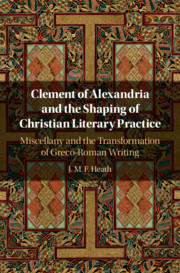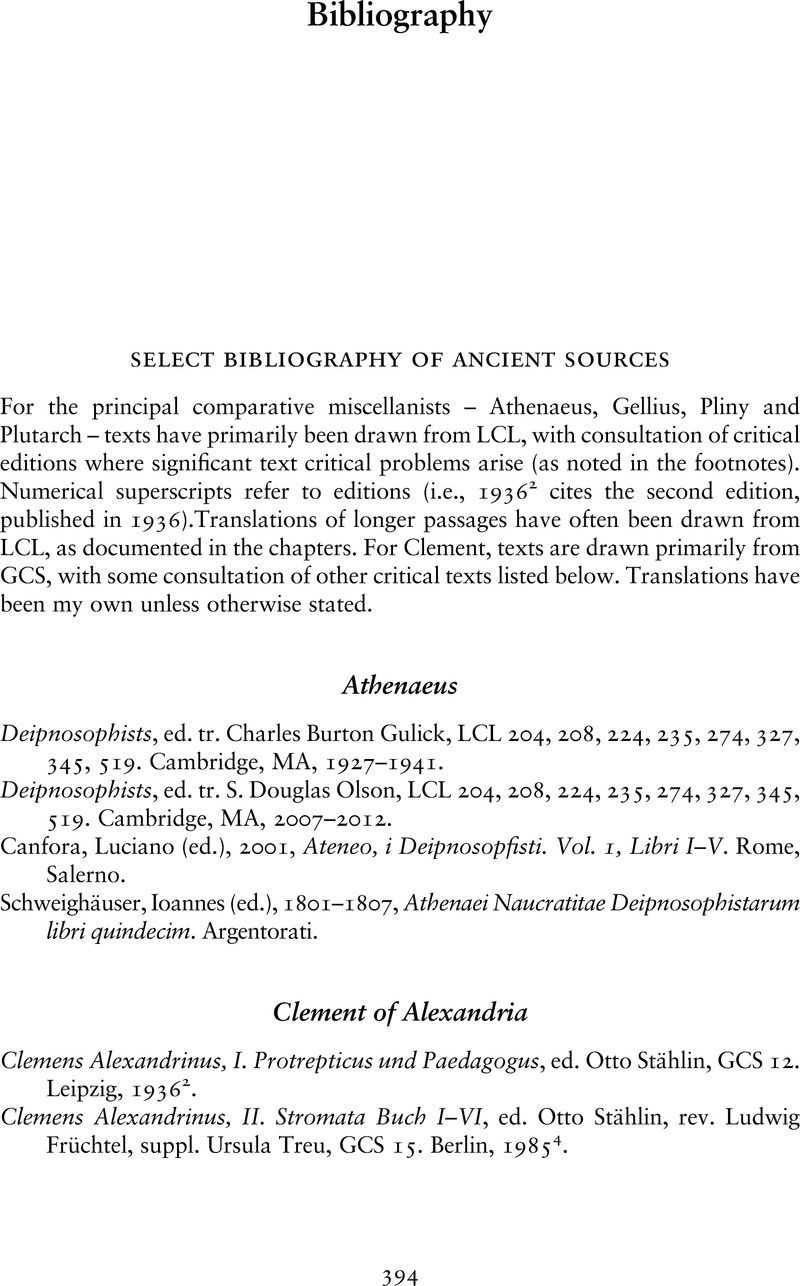 Clement of Alexandria and the Shaping of Christian Literary Practice
Clement of Alexandria and the Shaping of Christian Literary Practice Book contents
- Clement of Alexandria and the Shaping of Christian Literary Practice
- Clement of Alexandria and the Shaping of Christian Literary Practice
- Copyright page
- Contents
- Acknowledgements
- 1 Introduction
- 2 Clement’s Miscellanism and the Scholarly Trope of Christian Difference
- 3 Studying Ancient Miscellanism
- 4 Early Imperial Cultures of Miscellany-Making
- 5 Self-Introductions and Clement’s Miscellanistic Vocation
- 6 Miscellany Titles and Clement’s Divine Paratexts
- 7 The Miscellanist’s Trope of Deselecting Titles and Clement’s Conversion of Imagery
- 8 Muses in the Miscellanists’ Frame
- 9 Clement’s Theology of Hiddenness and the Logic of Christian Miscellanism
- 10 Mystery Initiation and Clement’s Literary Paideia
- 11 Poikilia
- 12 Conclusion
- Appendix The Literary Sequence of Protrepticus, Paedagogus, Stromateis (and Hypotyposeis)
- Bibliography
- Index
- References
Bibliography
Published online by Cambridge University Press: 16 December 2020
- Clement of Alexandria and the Shaping of Christian Literary Practice
- Clement of Alexandria and the Shaping of Christian Literary Practice
- Copyright page
- Contents
- Acknowledgements
- 1 Introduction
- 2 Clement’s Miscellanism and the Scholarly Trope of Christian Difference
- 3 Studying Ancient Miscellanism
- 4 Early Imperial Cultures of Miscellany-Making
- 5 Self-Introductions and Clement’s Miscellanistic Vocation
- 6 Miscellany Titles and Clement’s Divine Paratexts
- 7 The Miscellanist’s Trope of Deselecting Titles and Clement’s Conversion of Imagery
- 8 Muses in the Miscellanists’ Frame
- 9 Clement’s Theology of Hiddenness and the Logic of Christian Miscellanism
- 10 Mystery Initiation and Clement’s Literary Paideia
- 11 Poikilia
- 12 Conclusion
- Appendix The Literary Sequence of Protrepticus, Paedagogus, Stromateis (and Hypotyposeis)
- Bibliography
- Index
- References
Summary

- Type
- Chapter
- Information
- Clement of Alexandria and the Shaping of Christian Literary PracticeMiscellany and the Transformation of Greco-Roman Writing, pp. 394 - 423Publisher: Cambridge University PressPrint publication year: 2020


